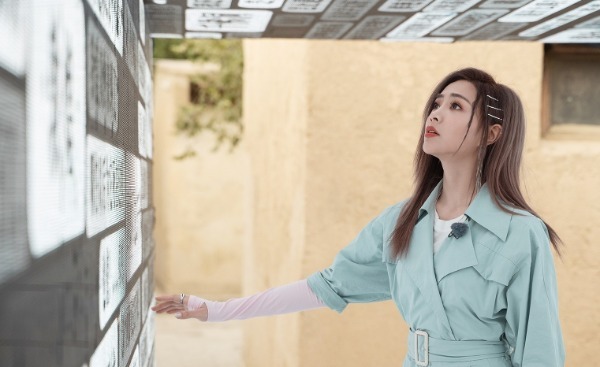 |
|
A scene from the reality show, Glory Is Back, which features the present and past of Gansu province's city of Dunhuang, the Gobi Desert, Mogao Caves, as well as its people. [Photo provided to China Daily] |
The professional attitude of the production team finally persuaded the academy to greenlight the show. However, to protect frescoes from exposure to artificial light, no cameras were allowed in the caves. Luckily, digitization of the frescoes greatly helped Li's team to get the footage.
Persistence may be a key word for those staff members working to protect the Mogao Caves, as shown in the program. Many of them have displayed the "Mogao Spirit" in different facets, including Li Yunhe, 87, who devoted his life to restoring the frescoes. He was not alone. A group of workers have spent decades growing grass that slows down sand erosion in the caves.
Also from the show, viewers began to learn and understand how history could mold the character of a city, and how it also deeply influenced its local people. For example, generations of students in Dunhuang have been doing a set of unique morning exercises on their sports grounds which featured movement that was inspired by the frescoes.
"We want to reflect a panorama of Dunhuang," Li says. "Everyone can find something they would like to see of the place."
The production team aims to explain the caves in easily understandable ways, covering a range of aspects, such as flying apsaras, hero sagas and the precious historical manuscripts.
Folklore, food, sports and some other areas are also covered in the program.
"It's difficult to connect Dunhuang with fashion before you go there," Li says. "But, as you delve deeper, you'll discover something fashionable from traditional beauty, even in today's aesthetics."
Speaking of fashion, He Jibing, producer of the program, knows that the choice of young idols to appear in Glory Is Back will attract fans, but understands that there may be those who question whether such programs should feature idols who lack expertise in the subject.
He believes, however, that inviting these celebrities will help the audience empathize and relate.
"That is the meaning of exploration," He explains. "When viewers see the caves again and again, following the experts and completing one mission after another, their knowledge will grow."
In the program, these idols are seen performing the same routines as local people, such as growing grass with the workers, or trying difficult acrobatic stunts when collaborating with local troupes' performers, sometimes resulting in funny scenes when they fail to get a handle on some of the tougher tasks.
It is hoped that through this process, these idols, together with their fans who watch the show, will become more interested in the culture and history of the mysterious city, according to He.
"It's like planting a seed of curiosity among those young people who have never been to Dunhuang," He says. "They can go elsewhere to look for serious documentaries."